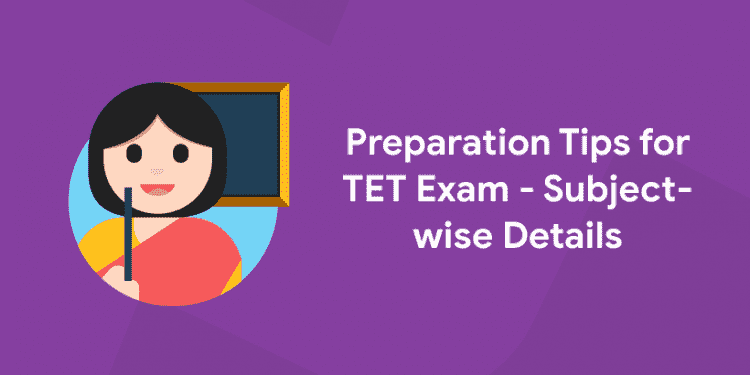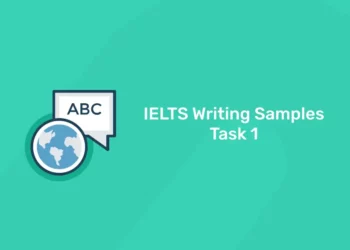Table of Contents
Teachers Eligibility Test is the common test conducted to evaluate the teaching aptitude of candidates who prefers teaching as their career. Earlier such an exam was not conducted, and the Bachelor or Master’s degree in Education was required as the basic criteria for appointment in schools. However, for government schools (both Central or State) the candidates were required to attempt and rank in the state-wise PSC tests or interviews held by the recruiting Board. In 2011, the CTET exam was introduced, along with state-wise TET. This has increased the competition among the aspirants and increased the overall teaching aspects, for which the TET/ SET/ NET exams remain as criteria. So, the importance of TET qualification for categories is important, and interested candidates analyze TET subject-wise preparation tips.
Subscribe to get State-wise TET Exam Video Courses
TET subject-wise preparation tips – Papers for Test
Before discussing the TET subject-wise preparation tips, let us check the TET exam syllabus details. As we all know, almost all states conduct state-wise TET examinations, as an eligibility test for the teaching aptitude. The state TET exams are controlled and conducted by the state-wise education boards, and that of the Central TET is conducted by CBSE. Almost all TET examination, held annually/ biannual, follows same syllabus and exam pattern.
TET exam pattern consists of two papers, namely:
- Paper I – For teaching aspirants preferring to teach from classes I – V
- Paper-II – For teaching aspirants preferring to teach from classes VI-VIII
Subject Analysis
Paper I
- Child development and pedagogy
- Language 1
- Language 2
- Mathematics
- Environmental studies – EVS
Paper-II
- Child development and pedagogy
- Language 1
- Language 2
- Mathematics
- Science
- Social Sciences
Practice TET Online Mock Tests 2021
TET 2021 Exam Pattern
1: The first recipient of the ‘Rajiv Gandhi Khel Ratna’ award?
As discussed in the above section, the pattern for almost all TET eligibility tests is the same, with a time duration of 150 minutes for a total of 150 multiple-choice questions.
The minimum cut-off marks for the aspirants will be 60%.
TET Paper 1 Examination Pattern
| TET Subjects | Total Questions/ Maximum marks |
| Child Development & Pedagogy | 30/30 |
| Environmental Studies | 30/30 |
| Mathematics | 30/30 |
| Language I | 30/30 |
| Language II | 30/30 |
TET Paper 2 Examination Pattern
| TET Subjects | Total Questions/ Maximum marks |
| Child Development & Pedagogy | 30/30 |
| Environmental Studies | 30/30 |
| Mathematics | 30/30 |
| Language I | 30/30 |
| Language II | 30/30 |
TET Detailed Syllabus 2021 – Subject-wise Topics
Before discussing the points on the TET Syllabus, as all know to understand each topic to be covered for the TET examination preparation for both papers is necessary. For that check the detailed examination syllabus, for both papers 1 and 2. The common syllabus is given for the common subjects included in both papers 1 & 2.
Child Development and Pedagogy Section
| Child Development (Number of questions – 15 MCQs) | Learning and Pedagogy – (Number of questions -10 MCQs) | Concept of Inclusive Education and Understanding Children with Special Needs (Number of questions -5 MCQs) |
| Concept of development and its relationship with learning
Principles of Child Development Influence of Heredity and Environment Socialization Process Social World and Children, teacher, Parents, and Peers Gender as a Social Construct Gender roles, bias, and educational practice Differences among learners Diversity of Language and Understanding Differences in caste, gender, community, etc. Progressive Education Concepts Construct of Intelligence and critical perspectives Multi-Dimensional Intelligence Language and Thought Piaget, Kohlberg, Vygotsky constructs and critical perspectives. Assessment for Learning and Assessment of Learning School-Based Assessment A continuous and comprehensive evaluation Perspectives and practices Enhancement of critical thinking in the classroom Formulating correct questions to interpret the readiness of the learners Assessment of Learner Achievement |
Analyzing imaginations and thoughts of the children and how they learn.
Factors that contribute to learning, both personal and environmental. Basics of Teaching and Learning Learning as a Social Activity How children think and learn Reasons why children ‘fail’ to gain success in school life Alternative Concepts of Learning Cognition and Emotions Motivation and Learning Factors that Contribute to learning Interpretation of the children’s errors as vital steps during the learning process |
Addressing learners from diverse backgrounds including disadvantaged and deprived, the needs of children with learning difficulties, ‘impairment’ etc., and the Talented, Creative, especially abled Learners |
Language I & II
Note – Languages 1 and 2 will be different, usually the local language and English
| Comprehension 15 MCQ | Pedagogy of Language Development – 15 MCQ |
| Language Comprehension
Unseen Passages like Prose, Poetry, drama Grammar |
Learning and Acquisition
Principles of Language Teaching Role of Listening and Speaking Functions of Language Language Skills Challenges of Teaching Students in a Diverse Classroom Atmosphere Learning Materials Communication of Ideas Resources of Classroom Remedial Teaching |
Mathematics for Primary Classes
| Main Content (15 MCQs) | Pedagogical Issues related to Maths (15 MCQs) |
| Geometrical Figures
Knowledge of Space 3 D Geometrical Figures Numbers and Fractions Mathematical Operations on Numbers and Algebraic Expressions Measurements, Weight, time, and volume Data Handling and Measures of Central Tendency Ratio and Proportion Mathematics in Daily Life Lines and Angels Polygons Basic Algebra, Linear Equation, and Identities |
Nature of Mathematics and Logical thinking
Reasoning Patterns Understanding Children Thinking Place of Mathematics in Curriculum Language of Mathematics Community Mathematics Evolution through formal and informal methods Problems of Teaching Diagnostic and Remedial Teaching Errors, interpretation and related aspects of Teaching |
Environmental Science EVS
| Main Content (15 MCQs) | Pedagogical Issues related to EVS (15 MCQs) |
| Our Environment, Major elements of Environment
Types of Ecosystems, Food Chain, Balancing Factors, Trophic Levels, Ecological Pyramids, Food Web Plant and Animal Species Factors of Bio-Density Pollution and factors, Effects of Pollution, Causes, and Effects of Greenhouse Waste Management Measures National Level Environmental Movements Activists Award-winning writers related to Environment Major Environmental phenomena Ecological Conservations Living World, Processes of Life, Cells, and tissues Organs System, Energy, Chemicals in Daily Life Types of Energy: Tidal, Solar, Geothermal, Wind Biodegradable wastes, non-Biodegradable wastes Human Health and Hygiene Types of Monomers Lipids, Vitamins, Proteins, and Minerals – Deficiencies Electricity, SI Units Numerical Terminologies |
Important Methods of Teaching
Present Teaching Methods Main Features of NCF 2005 Features and Applications of Practical Methods Classroom Values Methods of Evolution |
TET Paper 2 Syllabus for Social Studies
| Content (40 MCQs) | Pedagogical issues related to Social Science (20 MCQs) |
| India and State History
Earliest Societies, Planet Earth and the Social System Political Developments, Culture and Science The First Cities and States Creation of Empires, New Kings and Kingdoms, Sultans, Delhi Architecture Contacts with Distant Lands Colonialism and Tribal Society The Revolt of 1857-58 Women and Reform, Nationalist Movements in India, Challenging the Caste Systems Geography, Geography as a Social Science Planet Earth, Environment and its Totality Nature and Human Environment Settlement, Transport, Resources Human Agriculture Social and Political Life Diversity, Democracy State Government, Understanding Media Unpacking Gender The Constitution, Parliament, Judiciary Social Justice |
Concept and Nature of Social Science
Classroom Processes Activities and Discourse Problems of Teaching Social Science Primary, Secondary Sources Project and Work Evaluation |
Paper 2 Syllabus for Mathematics for classes VI-VIII
| Subject Content (20 MCQs) | Pedagogical Issues related to upper primary Maths (10 MCQs) |
| Arithmetic Progression, Number System
Statistics and Probability Trigonometry & Coordinate Geometry Identifies, Pair of Linear Equations in Two Variables, Quadratic Equations Polynomials Mensuration, Triangles, Quadrilaterals, Circles, Areas Related to Circles |
Nature of Mathematics and Logical thinking
Reasoning Patterns Understanding Children Thinking Place of Mathematics in Curriculum Language & Community of Mathematics Evolution through formal and informal methods Problems of Teaching Diagnostic and Remedial Teaching Errors, interpretation and related aspects of Teaching |
TET Paper 2 Syllabus for Science
| Content (20 MCQs) | Pedagogical Issues for Science of Upper primary (10 MCQs) |
| Physics
Motion- Types of Motions, Laws of Equations, Law of Numerical Light: Reflection, Refraction, Lens and Mirrors: Concave, Convex, Spherical Mirrors and Lens Resisters Magnetism Natural Phenomenon: Dispersion, Eye Defects, Eye Chemistry Metals and Non-Metals Physical and Chemical properties Atoms and Molecules, Formulae Artificial Polymers, Natural Uses Types and applications of Natural Resources Soaps, Detergents, Medicines, Sweeteners Biology Food and Food Chain Food Web and Food Pyramid Food Sources, Plant and implications Energy Giving Foods, Carbohydrates, Lipids, Proteins, vitamins, minerals, Body Building foods Micro-Organisms, Plant and Animal Kingdom Vertebrates, Invertebrates Plant Cell and Animal Cell Tissues, Organ, Systems |
Nature and Structure of Sciences
Natural Science, Aims, Objectives Understanding and Appreciating Sciences Approaches and Integrated Approaches Observation/Experiment/ Approach Problems and Remedial Teaching |
TET Preparation Tips 2021
Apprehend the Whole Syllabus
Read and understand the whole syllabus given above. Mark the topics that are easy to complete, and that is difficult to prepare. Sorting will help during the study plan preparation.
Strategize your Study
Make a study plan to execute the syllabus completion. Otherwise, you may be confused, and the topics will be pending! In order to achieve this, it is suggested that aspirants can join coaching centers, probably online coaching like Entri, to have a mastered study plan for state-wise and Central TET exams. Along with that, continue self-analysis.
Prioritize Mocks and Previous Year Question Papers
Prioritize practicing the mock tests provided on the online platforms, also solve previous year’s question papers. It is a much-needed factor to boost your study. Don’t neglect the practice, spend time to work out the sectional, subject-wise latest mock tests.
Another benefit of practicing the mocks and previous papers is that you will get an idea of ‘Time Management. The crucial criteria, where most of the candidates’ tire! The time available for each question is 1 min, if you divide time, like 150 questions, 150 minutes. But those candidates who have attempted the exam once can understand, that, rarely you will get 1 minute for 1 question!!
Also, after the mock exam, attend the exam with the same seriousness as the actual TET exam, then you will get a self-analyzation of weak areas and can put effort to improve on those areas. So, don’t keep mock practice to the last lap!!
Self-Directed Learning
Self-preparation and self-motivation are also important. The classes, mentors, will help with topics. But it is the determination of candidates to bag their aim, which drives them over TET preparations.
TET 2021 Subject-wise Preparation Tips
The subject interface is crucial for the teaching test, The main subject to be focused on is without any doubt, Pedagogy. The teaching subject knowledge, along with the input given by a teacher, toward the ward, in making them learn the topic is the important factor. A teacher is expected to impart motivation and fulfill the role of education in society.
Child Development and Pedagogy
This is the vital part of teaching aptitude tests. Topic includes the educational psychology of teaching and learning as well as understanding the characteristics and needs of diverse learners. The way in which a tutor interacts with learners and the attributes and qualities of a good facilitator of learning. And various teaching methods that are to be implemented, including principles of learning, Professional Conduct and Policy.
Both Paper I & II include this topic. The question’s depth may vary to the Paper for which you are preparing.
Language Section
Both languages 1& 2 include the state-wise language and the English language. The pedagogy related to language and the basic grammar, prose writing, unseen passage reading will be asked, So, it is better to start preparation with grammar and reading newspapers will help to have vocab skills.
Maths, EVS, Social Science
The subject knowledge is very important. So, start preparing with the textbooks of the (I- VIII) of state councils/boards and NCERTs. This will surely back up the preparations. And, can depend on various publications. Online platforms will provide brief notes and main topics to be covered.
Conclusion
TET exam is the crucial examination for the aspirants who desired to be a part of imparting education to society. The job is very much responsible because it will decide the character and future of tomorrow’s citizens. So, the examination has to be seriously attended and so the preparation. The above TET subject-wise preparation tips are given as a guide or parameters that candidates should never miss! Work hard and ace the test.











